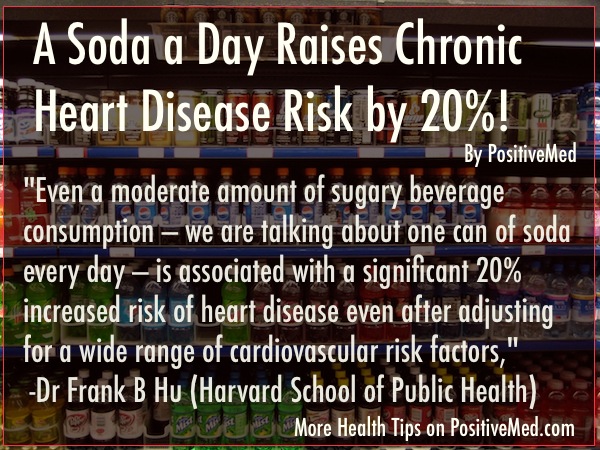Various studies suggest there is a link between drinking soda and heart disease. The latest study from Harvard School of Public Health suggest that sodas are associated with 20% increased risk of coronary heart disease (CHD) as well as some adverse changes in lipids, inflammatory factors, and leptin.

“Even a moderate amount of sugary beverage consumption — we are talking about one can of soda every day — is associated with a significant 20% increased risk of heart disease even after adjusting for a wide range of cardiovascular risk factors,” senior author Dr Frank B Hu (Harvard School of Public Health, Boston, MA) told heartwire . “The increased risk is quite substantial, and I think has important public-health implications given the widespread consumption of soda, not only in the US but also increasing very rapidly in developing countries.”
Hu says that one of the major constituents of soda, high-fructose corn syrup, is subsidized in the US, making such drinks “ridiculously cheap” and helping explain why consumption is so high, particularly in lower socioeconomic groups.
“It has been shown for minority groups — such as African Americans and Asians — that they are more susceptible to the detrimental effects” of sugary drinks on diabetes incidence, he notes.
[Last Updated on May 20th 2014]
Source: medscape






